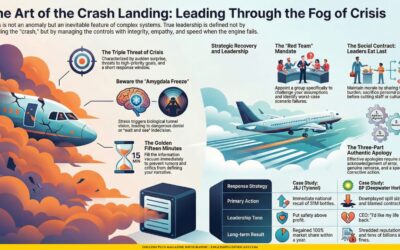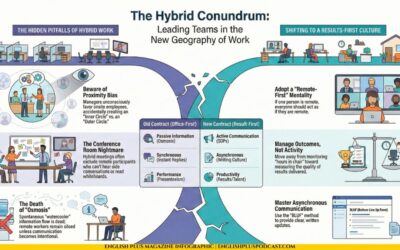For generations, the prevailing winds of commerce often seemed to whisper a single mantra: maximize shareholder profit. The bottom line was king, and any consideration beyond its immediate enhancement was frequently viewed as a distraction, a philanthropic afterthought, or, worse, a drag on efficiency. However, the corporate landscape is undergoing a seismic shift. A new consciousness is dawning, one that champions the idea that businesses can, and indeed should, be powerful forces for good. This is the realm of ethical business, a domain where the pursuit of profit and the fulfillment of purpose are not seen as mutually exclusive antagonists, but as potentially synergistic partners. It’s a challenging tightrope walk, certainly, but one that growing numbers of businesses, consumers, and investors believe is the only sustainable path forward.
Beyond Lip Service: What Constitutes Truly Ethical Business?
Before we dive deeper, let’s clarify what we mean by “ethical business.” It’s more than just a glossy CSR (Corporate Social Responsibility) report tacked onto an annual review or a one-off donation to a local charity. True ethical business involves embedding a moral framework into the very DNA of an organization.
A Foundation of Values
At its core, an ethical business operates with a strong set of values that go beyond legal compliance. These values might include integrity, honesty, fairness, respect for individuals, and a commitment to the well-being of the broader community and environment. It’s about proactively choosing to do the right thing, even when no one is watching, or when doing otherwise might offer a short-term financial gain.
Considering All Stakeholders, Not Just Shareholders
A pivotal aspect of ethical business is the expansion of focus from mere shareholder primacy to a more inclusive stakeholder approach. Stakeholders encompass anyone affected by a company’s operations – employees, customers, suppliers, the local community, and the environment, alongside those who own shares. An ethical business recognizes its responsibilities to all these groups and strives to create value for them collectively, not just for its investors. This means fair wages and safe working conditions for employees, honest products and services for customers, sustainable practices for the environment, and positive contributions to the community.
The Rising Tide: Why Ethical Business is Gaining Momentum
The shift towards more ethical business practices isn’t happening in a vacuum. Several powerful currents are driving this change, making it less of a niche concern and more of a mainstream imperative.
The Conscious Consumer and Brand Reputation
Today’s consumers, particularly younger generations, are increasingly wielding their purchasing power as a form of activism. They are more informed, more connected, and more inclined to support brands that align with their personal values. A company’s stance on environmental issues, labor practices, or social justice can significantly impact its reputation and, consequently, its sales. Negative press regarding unethical behavior can spread like wildfire in the digital age, causing lasting damage to a brand that might have taken decades to build. Conversely, a genuine commitment to ethical practices can foster profound customer loyalty and become a powerful differentiator in a crowded marketplace.
The War for Talent: Attracting and Retaining Purpose-Driven Employees
Employees, too, are seeking more than just a paycheck. They want to work for organizations where they feel their contributions matter and where the company’s mission resonates with their own sense of purpose. Ethical businesses often find it easier to attract and retain top talent because they offer a more meaningful work environment. When employees believe in what their company stands for, they are typically more engaged, more productive, and more likely to become ambassadors for the brand.
Long-Term Vision: Sustainability and Risk Mitigation
There’s a growing recognition that unethical or unsustainable practices are, in the long run, bad for business. Ignoring environmental risks can lead to resource scarcity or regulatory crackdowns. Poor labor practices can result in strikes, lawsuits, or supply chain disruptions. A focus on short-term profits at the expense of ethical considerations can create significant long-term vulnerabilities. Ethical businesses, by their nature, tend to adopt a longer-term perspective, investing in sustainable practices and building resilient relationships with their stakeholders, which can ultimately lead to more stable and enduring success.
The Watchful Eyes: Regulatory Pressure and Investor Scrutiny
Governments and regulatory bodies worldwide are increasingly enacting legislation related to environmental protection, labor rights, and corporate governance. Beyond legal mandates, investors are also paying closer attention to Environmental, Social, and Governance (ESG) criteria when making investment decisions. They recognize that strong ESG performance can be an indicator of a well-managed company with a lower risk profile and better prospects for sustainable growth. This investor focus is a significant impetus for companies to take their ethical responsibilities more seriously.
The Blueprint for Better Business: Key Pillars of Ethical Operation
So, what does ethical business look like in practice? It typically involves a multi-faceted approach, addressing responsibilities across several key areas.
Environmental Stewardship: Beyond Greenwashing
This goes far beyond token recycling programs. True environmental stewardship involves a commitment to minimizing a company’s negative impact on the planet and, where possible, contributing to its restoration. This can include reducing carbon emissions, conserving water and energy, minimizing waste, sourcing sustainable materials, and protecting biodiversity. Crucially, it requires transparency and a genuine effort to avoid greenwashing – the practice of making misleading claims about environmental friendliness.
Social Responsibility: People at the Core
Ethical businesses prioritize the well-being of people. This means ensuring fair wages, safe working conditions, and opportunities for development for their employees. It involves fostering diversity, equity, and inclusion within the workplace. It extends to ethical sourcing, ensuring that suppliers also adhere to fair labor standards and human rights principles. Furthermore, it often includes active community engagement, supporting local initiatives, and contributing positively to the societies in which the business operates.
Unwavering Governance: Transparency and Accountability
Strong corporate governance is the bedrock of an ethical business. This encompasses transparency in operations and financial reporting, robust anti-corruption measures, fair competition practices, and accountability to all stakeholders. It means having clear ethical codes of conduct and mechanisms for reporting and addressing unethical behavior without fear of reprisal.
Walking the Talk: From Aspiration to Action
Having noble intentions is one thing; translating them into tangible business practices is another. The journey to becoming a truly ethical business requires deliberate effort and systemic change.
Purpose as the North Star
It starts with defining a clear purpose beyond profit. Why does the company exist? What positive impact does it aim to make? This purpose should then inform the company’s values, strategy, and decision-making processes at every level.
Integration, Not Isolation
Ethical considerations cannot be siloed in a separate department. They must be integrated into the core business strategy, from product design and marketing to supply chain management and human resources. Every business decision should be viewed through an ethical lens.
Measuring What Matters: The Rise of Certifications and Standards
To demonstrate commitment and track progress, many businesses are adopting recognized standards and pursuing certifications. B Corp certification, for example, is a rigorous assessment of a company’s overall social and environmental performance, accountability, and transparency. Reporting on ESG metrics is also becoming increasingly common.
The Thorny Path: Challenges in Balancing the Scales
The path of ethical business is not without its obstacles. Companies often face genuine dilemmas and trade-offs.
The Cost Conundrum
Implementing ethical practices – such as investing in sustainable technologies or paying higher wages for ethically sourced materials – can sometimes involve higher upfront costs. The challenge lies in demonstrating that these investments can lead to long-term benefits, such as enhanced brand loyalty, reduced risk, and improved employee productivity, which may outweigh the initial expenditure.
The Labyrinth of Global Supply Chains
For multinational corporations, ensuring ethical practices throughout vast and complex global supply chains can be a monumental task. Monitoring and enforcing standards across numerous tiers of suppliers in different countries with varying regulations and cultural norms requires significant diligence and resources.
The Authenticity Tightrope: Avoiding Purpose-Washing
As ethical business becomes more fashionable, there’s a risk of “purpose-washing” – companies superficially adopting the language of purpose without making substantive changes to their practices. Maintaining authenticity and genuinely living up to stated ethical commitments is crucial for building trust.
The Ethical Imperative: Towards a New Business Paradigm
Despite the challenges, the movement towards ethical business appears to be more than a fleeting trend. It signals a fundamental re-evaluation of the role of business in society. Companies are increasingly recognizing that long-term value creation is inextricably linked to the well-being of people and the planet. The pursuit of profit and the advancement of purpose need not be at odds; indeed, when aligned, they can create a powerful synergy, driving innovation, fostering resilience, and contributing to a more equitable and sustainable world. The moral compass of commerce is slowly but surely pointing towards a future where doing good is not just a nice-to-have, but an essential component of doing well.
Let’s Learn Vocabulary in Context
Alright, let’s unpack some of the key terms we used in our discussion about ethical business. These words are not just business jargon; many of them are incredibly useful for talking about society, personal values, and how things work in the wider world. Getting comfortable with them can really elevate your understanding and expression.
First up, we talked about a “paradigm shift” in business. The traditional paradigm was often shareholder profit above all. A paradigm is a typical example, pattern, or model of something. It can also refer to a worldview or a set of shared assumptions that shapes how we understand and approach things. So, a paradigm shift means a fundamental change in these underlying assumptions or practices. Think about how the invention of the internet caused a paradigm shift in how we access information and communicate. You might say, “The discovery of DNA led to a paradigm shift in biology.”
We mentioned that ethical business involves considering all stakeholders, not just shareholders. A stakeholder in an organization or project is any person, group, or entity that has an interest or concern in its operations or success. This is broader than a shareholder, who specifically owns shares (stock) in a company. Employees, customers, suppliers, the local community, and even the environment can be considered stakeholders because they are all affected by what the company does. When making a big community decision, a city council needs to consider all stakeholders – residents, local businesses, environmental groups, etc.
The article noted that investor focus on ESG criteria is a significant “impetus” for companies. An impetus is a force that makes something happen or happen more quickly. It’s the driving force or motivation behind an action or process. So, investor demand is a strong push for companies to adopt more ethical practices. You could say, “The upcoming deadline provided the impetus for the team to finish the project,” or “Her passionate speech was the impetus for change in the community.”
We discussed “environmental stewardship.” Stewardship is the responsible overseeing and protection of something considered worth caring for and preserving. So, environmental stewardship means taking care of the natural world. It’s about managing resources responsibly for the long term. A museum director has stewardship of the museum’s collection. It implies a sense of duty and care.
Then there’s “greenwashing.” The article warned against greenwashing, “the practice of making misleading claims about environmental friendliness.” Greenwashing is a form of marketing spin in which companies try to make themselves look more environmentally friendly than they actually are. It’s often about creating a false impression of ecological responsibility. You might suspect a company is greenwashing if its advertising is full of nature imagery, but its actual practices are harmful to the environment.
Corporate “governance” was highlighted as crucial. Governance refers to the system of rules, practices, and processes by which a company (or any organization) is directed and controlled. Good corporate governance involves things like transparency, accountability, and ethical leadership. It’s about how the company is run at the highest levels. “Strong governance is essential for preventing corruption and ensuring the long-term health of the institution.”
We talked about the need for “transparency” in operations. Transparency, in this context, means operating in such a way that it is easy for others to see what actions are performed. It implies openness, communication, and accountability. If a government or organization is transparent, its decisions and dealings are open to public scrutiny. “Citizens demanded more transparency in the government’s spending.”
The term “sustainability” is central to ethical business. Sustainability focuses on meeting the needs of the present without compromising the ability of future generations to meet their own needs. It has three main pillars: economic, environmental, and social – often called profits, planet, and people. A sustainable business practice is one that can be maintained over the long term without depleting resources or harming society or the environment. “The company is investing in sustainability initiatives to reduce its carbon footprint.”
We also mentioned “risk mitigation.” A focus on ethical considerations can lead to “risk mitigation.” To mitigate something means to make it less severe, serious, or painful. So, risk mitigation is about taking steps to reduce the likelihood or impact of potential risks. By acting ethically, companies can mitigate risks like legal trouble, reputational damage, or loss of customers. “The city implemented new flood defenses as a mitigation measure against rising sea levels.”
Finally, the article suggested that when profit and purpose are aligned, they can create a powerful “synergy.” Synergy is the interaction or cooperation of two or more organizations, substances, or other agents to produce a combined effect greater than the sum of their separate effects. It’s when 1 + 1 equals 3, so to speak. When a company’s ethical purpose also drives its profitability, that’s synergy. “The synergy between the research team and the marketing department led to a highly successful product launch.”
These terms are all part of the evolving conversation about how businesses operate and their role in the world. Understanding them helps you participate more knowledgably in these important discussions.
Vocabulary Quiz
Let’s Discuss
Here are some questions designed to spark a deeper conversation about ethical business practices. We encourage you to share your thoughts, experiences, and even disagreements in the comments section!
- Consumer Power: How much influence do you believe individual consumers truly have in pushing companies towards more ethical practices? What are some of the most effective ways consumers can exercise this influence?
- Think about boycotts, choosing ethical brands, social media activism, and demanding transparency. Are there limitations to “voting with your wallet,” especially for those with limited financial means?
- The “Cost” of Ethics: It’s often argued that ethical practices increase costs for businesses, potentially making them less competitive. Do you believe this is always true? Can ethical behavior actually lead to greater long-term profitability and resilience? Provide examples if possible.
- Consider potential benefits like enhanced brand reputation, customer loyalty, employee morale, and risk reduction. Are there situations where the short-term costs are a genuine barrier, especially for small businesses?
- Beyond the Buzzwords: Terms like “sustainability,” “corporate social responsibility,” and “purpose-driven” are now common. How can we distinguish between genuine commitment and superficial “greenwashing” or “purpose-washing” by companies?
- What red flags might indicate a lack of authenticity? What signs point to a company truly embedding ethics into its core operations (e.g., third-party certifications like B Corp, transparent reporting, long-term track record)?
- Global vs. Local Ethics: Multinational corporations operate across diverse cultures with varying ethical norms and legal standards. How can a company maintain a consistent ethical framework globally while also respecting local contexts? Should universal ethical principles always take precedence?
- Consider challenges like differing labor laws, environmental regulations, or attitudes towards bribery and corruption. Where do you draw the line between cultural sensitivity and upholding core ethical values?
- The Role of Government and Regulation: What role should governments play in promoting ethical business practices? Is self-regulation by industries sufficient, or is stronger legislation and enforcement necessary to ensure businesses act responsibly towards society and the environment?
- Think about the effectiveness of current regulations. Are there areas where government intervention is crucial (e.g., climate change, worker exploitation)? What are the potential downsides of too much regulation?
Learn with AI
Disclaimer:
Because we believe in the importance of using AI and all other technological advances in our learning journey, we have decided to add a section called Learn with AI to add yet another perspective to our learning and see if we can learn a thing or two from AI. We mainly use Open AI, but sometimes we try other models as well. We asked AI to read what we said so far about this topic and tell us, as an expert, about other things or perspectives we might have missed and this is what we got in response.
Plus Magazine Discussions
A Deeper Dive
Hello there! It’s a fascinating and critically important discussion we’re having about ethical business. The article laid out a very comprehensive overview of the key drivers, pillars, and challenges. As someone who delves into corporate strategy and sustainability, I can perhaps highlight a few additional dimensions or emerging trends that are shaping this landscape.
One area that’s gaining significant traction is the concept of the “circular economy” as a practical manifestation of ethical and sustainable business. This moves beyond the traditional linear model of “take-make-dispose.” Instead, a circular economy aims to keep resources in use for as long as possible, extract the maximum value from them whilst in use, then recover and regenerate products and materials at the end of their service life. This isn’t just about recycling; it’s about fundamentally redesigning products, services, and business models to eliminate waste and pollution from the outset. Companies adopting circular principles are finding new revenue streams, reducing costs, and significantly enhancing their environmental stewardship.
Another layer to consider is the increasing sophistication of measuring and reporting non-financial performance. While ESG (Environmental, Social, Governance) criteria were mentioned, the frameworks for these are becoming much more standardized and rigorous, with bodies like the International Sustainability Standards Board (ISSB) working to create a global baseline. This move towards quantifiable and comparable data is crucial for investors, consumers, and regulators to truly assess a company’s ethical performance and hold it accountable, moving beyond vague promises. We’re also seeing a rise in impact investing, where investors actively seek to generate positive social and environmental impact alongside a financial return.
It’s also worth noting the growing importance of human rights due diligence in supply chains. This goes beyond simply avoiding child labor; it involves companies proactively identifying, preventing, mitigating, and accounting for how they address their impacts on human rights throughout their entire value chain. Legislation like Germany’s Supply Chain Due Diligence Act or the proposed EU Corporate Sustainability Due Diligence Directive are making this a legal requirement, not just a voluntary nice-to-have. This is pushing companies to gain much deeper visibility into their suppliers and sub-suppliers.
Furthermore, the role of technology in enabling ethical business is a double-edged sword that deserves attention. On one hand, technologies like blockchain can offer unprecedented transparency in supply chains, helping to verify the provenance of materials or ensure fair payment to producers. AI can help analyze vast datasets to identify environmental or social risks. On the other hand, technology also presents new ethical dilemmas – data privacy, algorithmic bias, the future of work in an automated world. Ethical businesses need to navigate these technological frontiers responsibly.
Finally, while the focus is often on large corporations, the ethical practices and impact of Small and Medium-sized Enterprises (SMEs) are vital. SMEs often have deep roots in their local communities and can be incredibly agile in adopting purpose-driven models. They might not have the resources for extensive ESG reporting, but their commitment to their employees, local sourcing, and community well-being can be profoundly impactful. Supporting and recognizing ethical SMEs is crucial for a broader shift.
The conversation around ethical business is dynamic and constantly evolving. It’s moving from a peripheral concern to a central strategic imperative, driven by a confluence of societal expectations, environmental realities, and a deeper understanding of what truly constitutes long-term value.
Frequently Asked Questions
What defines an “ethical business” beyond basic legal compliance or superficial actions?
An ethical business is one that deeply integrates a moral framework into its core operations and decision-making. It goes beyond simply following the law or engaging in occasional philanthropy. Key elements include operating with a strong set of values like integrity and fairness, considering the well-being of all stakeholders (employees, customers, communities, and the environment) in addition to shareholders, and proactively choosing to do the right thing even when it doesn’t immediately maximize profit.
Why is there a growing emphasis on ethical business practices today?
Several factors are driving the shift towards ethical business. Consumers, especially younger generations, are more informed and use their purchasing power to support ethical brands. Employees are seeking purpose-driven work and prefer to work for ethical companies, aiding talent attraction and retention. Businesses are recognizing that ethical and sustainable practices contribute to long-term success and mitigate risks. Additionally, increased regulatory pressure and investor scrutiny through ESG criteria are pushing companies towards greater ethical responsibility.
Who are the key stakeholders that ethical businesses consider, besides shareholders?
Ethical businesses expand their focus beyond just shareholders to include all individuals and groups affected by their operations. This encompasses employees, customers, suppliers, the local community, and the environment. The goal is to create value for all these groups, ensuring fair treatment for employees, providing honest products to customers, employing sustainable environmental practices, and making positive contributions to the community.
How do consumers and employees influence the adoption of ethical business practices?
Consumers are increasingly conscious of a company’s ethical footprint and use their purchasing decisions to support brands that align with their values. Negative publicity regarding unethical behavior can severely damage a brand’s reputation, while genuine ethical commitment can foster customer loyalty. Similarly, employees are motivated by more than just salary; they seek purpose and a meaningful work environment, making ethical businesses more attractive and better at retaining talent.
What are the key areas or pillars that ethical businesses typically focus on?
Ethical business practices are often addressed across multiple areas. These include environmental stewardship, which involves minimizing environmental impact and promoting sustainability; social responsibility, focusing on the well-being of people through fair labor practices, diversity, and community engagement; and unwavering governance, ensuring transparency, accountability, and ethical conduct in operations and reporting.
What are some practical ways businesses can move from aspiring to be ethical to actually implementing ethical practices?
Becoming a truly ethical business requires deliberate action. This involves defining a clear purpose beyond profit that guides values and strategy, integrating ethical considerations into all aspects of the business (not just in separate departments), and measuring progress through recognized standards and certifications like B Corp or ESG reporting. It’s about embedding ethics into the core of how the business operates.
What are some of the primary challenges businesses face in pursuing ethical practices?
Despite the benefits, the path to ethical business is challenging. One major hurdle is the cost conundrum, as implementing ethical practices can involve higher initial investments. Navigating complex global supply chains to ensure ethical standards throughout is also a significant task. Additionally, businesses face the challenge of maintaining authenticity and avoiding “purpose-washing,” where they adopt ethical language without making genuine changes.
How does the shift towards ethical business suggest a change in the fundamental role of business in society?
The growing movement towards ethical business signifies a fundamental re-evaluation of the purpose of commerce. It moves away from the sole focus on maximizing shareholder profit towards a paradigm where businesses are seen as having a broader responsibility to people and the planet. It suggests that long-term value creation is intrinsically linked to social and environmental well-being, and that doing good can be a powerful driver of doing well.










0 Comments